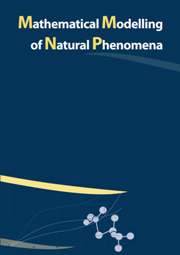Crossref Citations
This article has been cited by the following publications. This list is generated based on data provided by
Crossref.
Cagnone, Jean-Sebastien
Vermeire, Brian
and
Nadarajah, Sivakumaran
2013.
A Polynomial Adaptive LCP Scheme for Viscous Compressible Flows.
Huynh, HT
2013.
High-Order Space-Time Methods for Conservation Laws.
Cagnone, J.S.
Vermeire, B.C.
and
Nadarajah, S.
2013.
A p-adaptive LCP formulation for the compressible Navier–Stokes equations.
Journal of Computational Physics,
Vol. 233,
Issue. ,
p.
324.
Zimmerman, Ben J.
and
Wang, Zhi J.
2013.
The Efficient Implementation of Correction Procedure Via Reconstruction with GPU Computing.
Yu, Meilin
and
Wang, Zhijian
2013.
On the accuracy and efficiency of several discontinuous high-order formulations.
Williams, D.M.
Castonguay, P.
Vincent, P.E.
and
Jameson, A.
2013.
Energy stable flux reconstruction schemes for advection–diffusion problems on triangles.
Journal of Computational Physics,
Vol. 250,
Issue. ,
p.
53.
Castonguay, P.
Williams, D.M.
Vincent, P.E.
and
Jameson, A.
2013.
Energy stable flux reconstruction schemes for advection–diffusion problems.
Computer Methods in Applied Mechanics and Engineering,
Vol. 267,
Issue. ,
p.
400.
Shi, Lei
and
Wang, Zhi J.
2013.
Adjoint Based Anisotropic Mesh Adaptation for the CPR Method.
Kubatko, Ethan J.
Yeager, Benjamin A.
and
Maggi, Ashley L.
2013.
New computationally efficient quadrature formulas for triangular prism elements.
Computers & Fluids,
Vol. 73,
Issue. ,
p.
187.
Shi, Lei
and
Wang, Zhijian
2013.
Adjoint Based Error Estimation and hp-Adaptation for the High-Order CPR Method.
Williams, David M.
and
Jameson, Antony
2013.
Nodal Points and the Nonlinear Stability of High-Order Methods for Unsteady Flow Problems on Tetrahedral Meshes.
Huynh, HT
Wang, Zhi J.
and
Vincent, Peter
2013.
High-Order Methods for Computational Fluid Dynamics: A Brief Review of Compact Differential Formulation on Unstructured Grids.
Ivan, Lucian
and
Groth, Clinton P.T.
2014.
High-order solution-adaptive central essentially non-oscillatory (CENO) method for viscous flows.
Journal of Computational Physics,
Vol. 257,
Issue. ,
p.
830.
Zimmerman, Ben. J.
and
Wang, Z.J.
2014.
The efficient implementation of correction procedure via reconstruction with graphics processing unit computing.
Computers & Fluids,
Vol. 101,
Issue. ,
p.
263.
Huynh, H.T.
Wang, Z.J.
and
Vincent, P.E.
2014.
High-order methods for computational fluid dynamics: A brief review of compact differential formulations on unstructured grids.
Computers & Fluids,
Vol. 98,
Issue. ,
p.
209.
Tucker, P. G.
2014.
Unsteady Computational Fluid Dynamics in Aeronautics.
Vol. 104,
Issue. ,
p.
33.
Wang, Z. J.
2014.
High-order computational fluid dynamics tools for aircraft design.
Philosophical Transactions of the Royal Society A: Mathematical, Physical and Engineering Sciences,
Vol. 372,
Issue. 2022,
p.
20130318.
Shi, Lei
Wang, Z. J.
Zhang, L. P.
Liu, Wei
and
Fu, Song
2014.
A $$P_N P_M{-} CPR $$ P N P M - C P R Framework for Hyperbolic Conservation Laws.
Journal of Scientific Computing,
Vol. 61,
Issue. 2,
p.
281.
Yu, Meilin
Wang, Z.J.
and
Liu, Yen
2014.
On the accuracy and efficiency of discontinuous Galerkin, spectral difference and correction procedure via reconstruction methods.
Journal of Computational Physics,
Vol. 259,
Issue. ,
p.
70.
Williams, D. M.
and
Jameson, A.
2014.
Energy Stable Flux Reconstruction Schemes for Advection–Diffusion Problems on Tetrahedra.
Journal of Scientific Computing,
Vol. 59,
Issue. 3,
p.
721.


